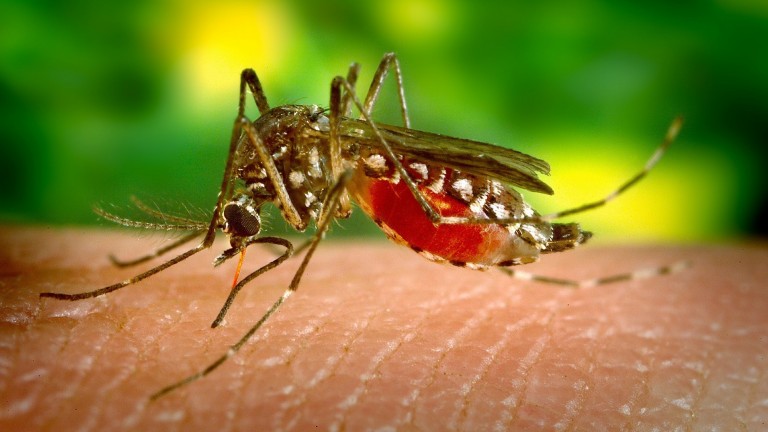A team in the UK has caused a buzzing cage full of mosquitoes to “crash” and die out after releasing sex-distorting DNA into their gene pool. The researchers say they eventually hope to use the technology, called a gene drive, to make malaria-carrying mosquitoes extinct in Africa.
The problem: The malaria parasite, spread by mosquitoes, infected some 216 million people worldwide in 2016 and killed 445,000 of them, according to Reuters. There’s no vaccine.
Gene gadget: A gene drive is a man-made genetic construct that spreads faster than usual as animals reproduce. The technology, in effect, provides a way to spread genetic alterations among wild organisms.
Last mosquito standing: A team at Imperial College London say they used a gene drive to spread broken copies of a gene that controls which sex a mosquito becomes. The genes turns female mosquitoes into hermaphrodites that can’t bite or lay eggs. The result was published in Nature Biotechnology today.
The experiments were carried out in cages. After eight generations, no normal females were left to have offspring, and the mosquitoes died out, they report. The project at Imperial College, called Target Malaria, is funded by the Bill & Melinda Gates Foundation, which has put more than $70 million into it.
Into Africa: Lead biologist Andrea Crisanti said it would be five to 10 years before gene-drive mosquitoes could be tested in the wild. “I regard a mosquito that transmits malaria as a pathogen—and as a pathogen we have the right to eliminate it,” Cristanti told NPR. “We have eliminated viruses like smallpox. We are trying to eliminate polio. I don’t see a big difference.”
Risks? Genetic poisoning via reproduction is more precise than insecticides, as it affects only one species. For background on Target Malaria, see our 2016 feature “The extinction invention.”

